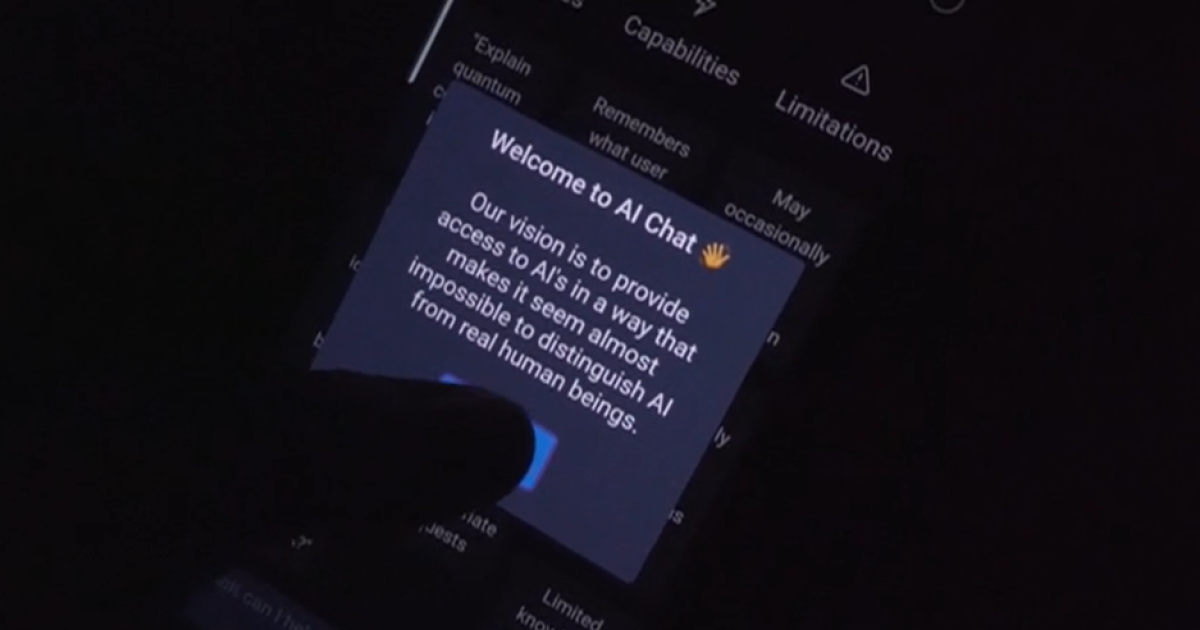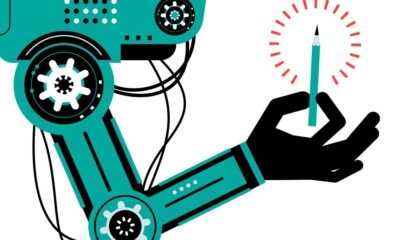Education
University Study Links Frequent AI Use to Lower Grades in Programming Courses

In the rapidly evolving world of education technology, a new study is raising alarms about the unintended consequences of artificial intelligence tools on student learning. Researchers at the University of Tartu in Estonia have found that frequent reliance on AI, such as ChatGPT, in programming courses correlates with poorer academic outcomes. Marina Lepp, an associate professor of informatics, and her co-author Joosep Kaimre analyzed data from over 100 students in an introductory programming class, revealing that those who turned to AI for debugging and code comprehension often scored lower on exams.
The study, detailed in a recent article from Phys.org, suggests that while AI can provide quick fixes and explanations, it may short-circuit the deep cognitive processes essential for mastering complex subjects. Students reported using these tools primarily to troubleshoot errors or grasp tricky concepts, but the data showed a negative correlation between usage frequency and final grades, hinting at over-dependence that undermines skill-building.
The Cognitive Cost of Convenience
This isn’t just about cheating; it’s about how AI alters the fundamental way students engage with material. Lepp’s research echoes concerns from other experts, including a piece in Psychology Today, which highlights how tools like ChatGPT reduce mental effort while paradoxically boosting short-term grades. The trade-off? A potential erosion of critical thinking, as students bypass the trial-and-error that fosters true understanding.
Industry insiders in edtech are taking note, with some drawing parallels to earlier tech disruptions like calculators in math classes. Yet, unlike those tools, AI’s generative capabilities can produce entire code snippets or essays, raising questions about authenticity in assessments. A related report from MDPI on AI’s impact on academic development warns that unguided integration could widen achievement gaps, particularly for students who lean on it as a crutch rather than a supplement.
Balancing Innovation and Skill Development
Educators are now grappling with how to integrate AI without diminishing learning. At institutions like UNC Greensboro, experiments with brief physical exercises before tests have shown performance boosts, as noted in another Phys.org article, suggesting that non-digital interventions might counter AI’s sedentary effects. Meanwhile, surveys from Middlebury College indicate over 80% of students use AI for coursework, but not always for outsourcing—many employ it for brainstorming, per insights shared in the same publication.
The broader implications extend to workforce readiness. A study in The Markup points out that AI-driven isolation could erode the social networks crucial for professional success, as students skip peer collaborations in favor of chatbot interactions. This solitude, while efficient, might leave graduates ill-equipped for collaborative environments in tech firms.
Policy Responses and Future Directions
Universities are responding with new guidelines. For instance, the University of Tartu’s findings have prompted calls for AI literacy programs, aligning with discussions in Phys.org about fostering critical AI use to bolster democratic values. Policymakers in the U.S. and Europe are debating regulations, with some advocating for mandatory disclosure of AI assistance in assignments.
Looking ahead, the challenge is to harness AI’s potential while preserving human ingenuity. As Lepp noted in her research, moderated use—perhaps limited to specific tasks—could enhance rather than hinder performance. Tech companies like OpenAI are partnering with educators to develop tools that encourage active learning, but the onus remains on institutions to adapt curricula. Without thoughtful integration, the promise of AI in education risks becoming a double-edged sword, prioritizing speed over substance in an era where deep skills matter more than ever.
Education
Kentucky schools, healthcare embrace AI despite mixed reactions

(LEX 18) — Artificial intelligence is reshaping how local organizations operate, from classrooms in Irvine to healthcare facilities in Lexington, as professionals navigate both the opportunities and challenges of this rapidly evolving technology.
Lisa Blue, who researches AI’s impact on workforce development, delivers six to eight speaking engagements per month discussing AI policy and implementation. She encounters varied student experiences with the technology.
“AI is going to change how we work before it changes who works,” Blue said.
Blue works to shift perceptions about AI in education, particularly addressing misconceptions from K-12 settings.
“We do have students coming in from K through 12, who have been told AI is straight up cheating and it’s bad don’t use it and I’m really trying to change that narrative,” Blue said.
At Estill County Area Technology Center in Irvine, students continue integrating AI into their studies. Allyson Banks, who works at the school, describes the technology’s dual nature.
“It is fantastic and terrifying at the same time,” Banks said.
The school’s programs align well with AI applications, according to Banks.
“We have robotics, manufacturing, a lot of different things that pair really well with AI,” Banks said.
For computer science teacher Zach Bennett, AI offers significant efficiency gains.
“Using AI, you can create things in half the time that it would normally cost,” Bennett said.
Healthcare transformation on the horizon
In Lexington’s healthcare sector, CEO, Dr. Stephen Behnke at Lexington Clinic sees AI as a transformative force, though still in early stages.
“I’d say we’re in the early innings of this,” Behnke said.
Behnke anticipates fundamental changes across the healthcare industry.
“I think that AI is going to fundamentally transform healthcare. I think that the power of the tools today is pretty early,” Behnke said.
Looking ahead operationally, Behnke predicts significant changes within the next decade.
“There’s almost no way that by 2030 2035 healthcare doesn’t look profoundly different,” Behnke said.
A market size and forecast report from Grand View Research supports Behnke’s projections, showing substantial growth in healthcare AI spending. The report projects that $187 billion will be spent on healthcare AI alone by 2030, representing a significant jump from 2024 market size.
The research highlights AI’s expanding role across multiple sectors, from education and manufacturing to healthcare, as organizations adapt to integrate these tools into their operations while addressing concerns about implementation and workforce impact.
As for jobs of the future and how they connect with AI?
Dr. Blue at EKU and Banks at Estill County ATC addressed that question:
“Any kind of job where it’s hands-on so we’re talking like healthcare, advanced manufacturing, logistics, construction, agriculture, they’re all adding AI enhanced jobs right now. So, they’re not really being threatened by it, they’re being enhanced by AI capabilities,” Blue said.
“I don’t think it’s necessarily gonna replace as many humans as it’s going to make us better at our jobs, or at least faster at our jobs,” Banks added.
Education
Daystar University and MindHYVE.ai Launch AI-Powered Higher Education Transformation in Kenya
NAIROBI, Kenya and NEWPORT BEACH, Calif, Sept. 11, 2025 /PRNewswire/ — Daystar University, one of Kenya’s premier private Christian liberal arts institutions, and MindHYVE.ai, Inc., a global innovator in artificial intelligence, have entered into a landmark partnership to embed ArthurAI™, MindHYVE’s agentic AI learning platform, across Daystar’s academic ecosystem.
This partnership positions Daystar as one of the first universities in East Africa to implement a comprehensive AI-powered learning environment at scale — directly addressing the needs of Kenya’s over 500,000 higher education students, many of whom face challenges of access, personalization, and outcomes.
ArthurAI by the Numbers: Transforming Learning and Teaching
ArthurAI has already demonstrated significant measurable impact in academic environments:
- 80% reduction in curriculum preparation time – allowing faculty to shift focus from administrative tasks to mentorship, research, and innovation.
- Adaptive learning pathways – dynamically tailoring coursework to each student’s cognitive profile, learning style, and pace.
- Predictive analytics for student success – enabling early identification of at-risk learners and targeted interventions that raise completion and retention rates.
- Multilingual delivery in 10+ languages – critical in Kenya’s diverse linguistic landscape, ensuring inclusivity and accessibility.
- Mobile-first and offline capability – extending Daystar’s reach beyond classrooms, supporting equitable access even in bandwidth-limited environments.
“ArthurAI will not only enhance our classrooms — it will redefine them,” said Professor Martha Kiarie, Dean of the School of Science, Engineering and Health at Daystar University. “By leveraging adaptive intelligence, we can ensure every student is supported according to their unique learning needs. This is how we prepare our graduates to thrive in an AI-enabled global economy.”
Bill Faruki, CEO & Founder of MindHYVE.ai, added:
“ArthurAI isn’t a theory — it’s a proven system already delivering measurable gains. Partnering with Daystar allows us to show how Africa’s universities can leapfrog legacy systems and lead the world in responsible, scalable AI education.”
The rollout begins this semester across selected departments and will progressively expand to reach Daystar’s entire academic community. Quarterly reviews will measure student engagement, faculty adoption, and institutional outcomes — ensuring continuous improvement and maximum impact.
About Daystar University
Daystar University is a private Christian liberal arts university with campuses in Nairobi and Athi River. Chartered in 1994, Daystar is known for shaping servant-leaders equipped to transform society through faith-driven excellence.
About MindHYVE.ai
MindHYVE.ai™ is redefining the boundaries of intelligence by engineering autonomous systems and deploying domain-specific AGI agents across real-world sectors. Powered by the Ava-Fusion™ large reasoning model and architected for agent coordination, swarm intelligence, and adaptive autonomy, MindHYVE’s technology stack is revolutionizing law, medicine, finance, education, and governance.
With operations in North America, Asia, and now soon in Africa, MindHYVE.ai™ is on a mission to democratize access to transformative intelligence and architect the infrastructure for post-scarcity economies. Backed by HYVE Labs, the company continues to shape the future of agentic systems on a global scale.
Website: www.mindhyve.ai | Email: [email protected] | Contact: +1 (949) 200-8668
Media Contacts
Marc Ortiz
Email: [email protected]
Photo – https://mma.prnewswire.com/media/2771408/MindHYVE_ai_x_Daystar.jpg
Logo – https://mma.prnewswire.com/media/2730797/MindHYVE_ai_Logo_MindHYVE_ai_SQ_Logo.jpg

Education
Oxford Union condemns president-elect’s reported comments on Charlie Kirk shooting | University of Oxford

The Oxford Union has “unequivocally” condemned comments apparently made by its president-elect about the fatal shooting of the rightwing activist Charlie Kirk in the US.
Kirk, 31, was killed at a Utah Valley University show on Wednesday in what authorities have called a political assassination.
George Abaraonye, who became president-elect of the debating society after a vote in June, posted comments in a WhatsApp group after his death, according to the Daily Telegraph.
One message was reported to have said “Charlie Kirk got shot, let’s fucking go”, while another thought to have been posted on Abaraonye’s Instagram account read “Charlie Kirk got shot loool”.
In a statement on Thursday, the Oxford Union criticised the student’s comments and said it “firmly opposes all forms of political violence and strongly stands by our commitment to free speech and considerate debate”.
“The Oxford Union would like to unequivocally condemn the reported words and sentiments expressed by its president-elect, George Abaraonye, with regards to the passing of Charlie Kirk,” the society wrote on X. “His reported views do not represent the Oxford Union’s current leadership or committee’s view.
“The current administration has, under president Moosa Harraj, no association with and is entirely independent from Mr Abaraonye’s administration.”
The statement added: “We would like to reiterate that our condolences lie with Charlie Kirk’s family, especially his wife and young children, who are enduring such terrible grief.”
Kirk and Abaraonye had met during a debate on toxic masculinity held by the Oxford Union in May, the Telegraph reported. Donald Trump, the US president, paid tribute to Kirk as a “martyr for truth and freedom” after the shooting.
-

 Business2 weeks ago
Business2 weeks agoThe Guardian view on Trump and the Fed: independence is no substitute for accountability | Editorial
-
Tools & Platforms1 month ago
Building Trust in Military AI Starts with Opening the Black Box – War on the Rocks
-

 Ethics & Policy2 months ago
Ethics & Policy2 months agoSDAIA Supports Saudi Arabia’s Leadership in Shaping Global AI Ethics, Policy, and Research – وكالة الأنباء السعودية
-

 Events & Conferences4 months ago
Events & Conferences4 months agoJourney to 1000 models: Scaling Instagram’s recommendation system
-

 Jobs & Careers2 months ago
Jobs & Careers2 months agoMumbai-based Perplexity Alternative Has 60k+ Users Without Funding
-

 Podcasts & Talks2 months ago
Podcasts & Talks2 months agoHappy 4th of July! 🎆 Made with Veo 3 in Gemini
-

 Education2 months ago
Education2 months agoVEX Robotics launches AI-powered classroom robotics system
-

 Education2 months ago
Education2 months agoMacron says UK and France have duty to tackle illegal migration ‘with humanity, solidarity and firmness’ – UK politics live | Politics
-

 Funding & Business2 months ago
Funding & Business2 months agoKayak and Expedia race to build AI travel agents that turn social posts into itineraries
-

 Podcasts & Talks2 months ago
Podcasts & Talks2 months agoOpenAI 🤝 @teamganassi



















